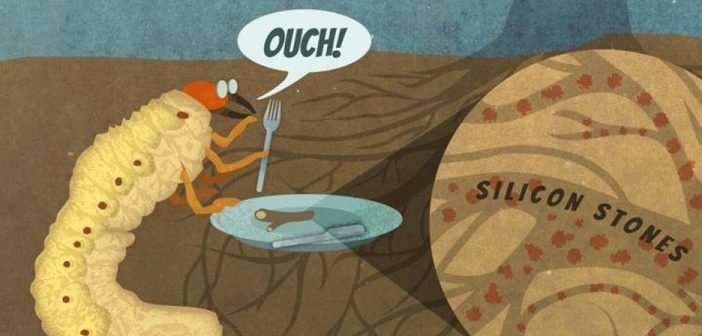Researchers at the University of Delaware and the Hawkesbury Institute for the Environment at Western Sydney University in Australia are examining the addition of silicon to soil to help strengthen plants against potential predators.
By amending the soil with silica, a form of silicon that plants can easily take up, in trials the researchers helped plants build up tiny particles called phytoliths, or ‘plant stones,’ to defend against herbivorous insects and possibly rodents.
“The plant builds up these sorts of stones in its tissues, which will reduce the digestibility of the plant material because digesting stones is not very easy,” said Ivan Hiltpold of the University of Delaware. “Also, these stones wear the mouth parts of insects and possibly rodents. If your teeth are not really cutting any more, then you cannot eat as much as you could. All of that added together will reduce the impact of herbivory on the plant.”
In experiments with sugarcane grown in a greenhouse, the researchers found that high levels of silicon concentrations decreased the growth of root-feeding insects and root consumption, the latter by 71 per cent. Because the silicon doesn’t affect grazing livestock, it also will affect humans when, for example, a person consumes boiled carrots or sweet corn.
The option of using silicon to naturally strengthen a plant’s defences could be both environmentally friendly and economically attractive to growers, as they would not have to spray as much to protect their crops.

Photo Credit: Jeff Chase/ University of Delaware
The post Adding silicon to soil to strengthen plant defences appeared first on Hort News.